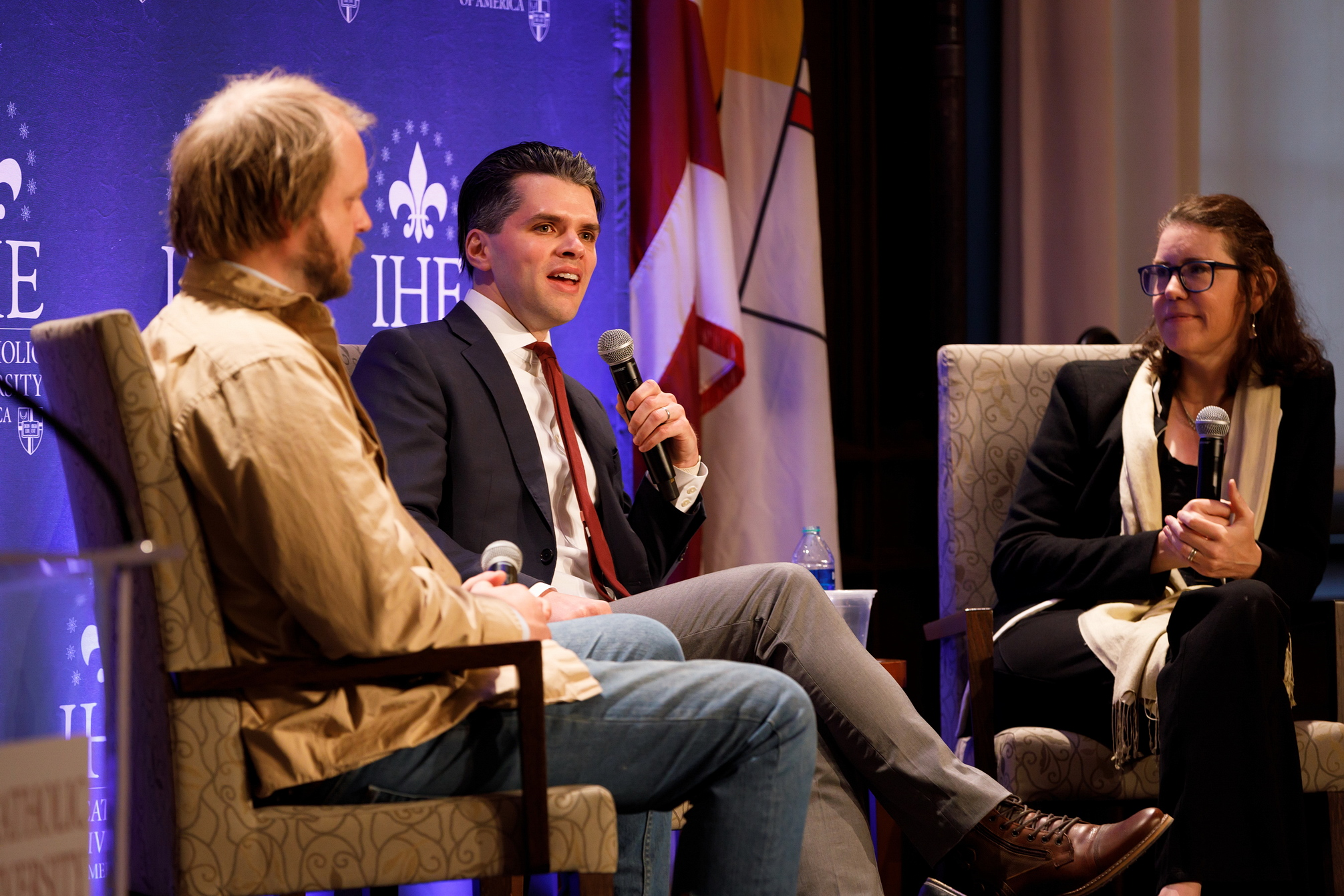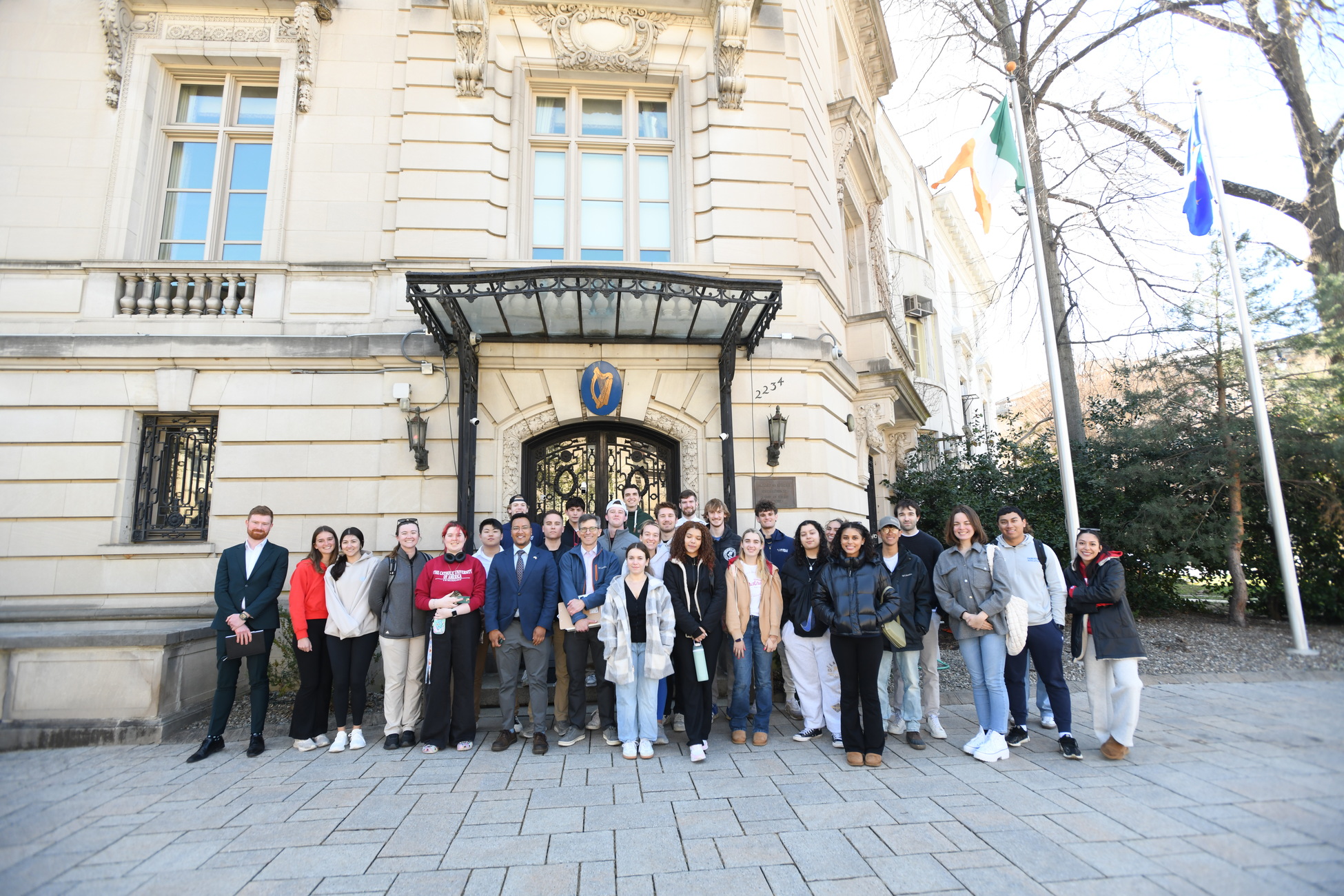Visiting panelists presented opposing views on the idea of a free birth policy in the United States at a discussion held by the Institute for Human Ecology at The Catholic University of America April 25.
The Institute for Human Ecology is the nation’s leading academic institute committed to identifying the economic, cultural, and social conditions vital for human flourishing.
Tom Shakely, chief engagement officer at Americans United for Life, began the discussion and said offering free birth is essential for the fabric of society and the improvement of American families. Megan McArdle, a writer for The Washington Post, called free birth a “symbolic gesture” that would worsen the fiscal issue in the U.S. and have no impact on the growth of family life.
Matthew Walther, editor of The Lamp, a publication supported by the Institute for Human Ecology, moderated the discussion.
Shakely said free birth, which is an emerging conversation in the U.S. since the overturn of Roe v. Wade, could be a solution to the shrinking and dissolution of family life in America, showing that “America supports birth, it makes it feasible to say yes to life.”
Similar to the education system, which is supported by taxpayer money, he said a free birth policy would serve not just a private good but the common good.
“We can do the same thing, by the same principle, to make birth free,” said Shakely. “I think on the broader level, getting us to a point where we realize we are all in this together.”
McArdle maintained the solution to building better family life in America comes from working on the culture, not the government since “politics is downstream of culture.”
She said the society makes many young people rank personal freedom and entertainment over starting a family.
“I don’t think on the margin the cost of birth is really what is driving people to not have kids,” she said. “If you were going to look for expenses that you were trying to defray, … I think there would be a lot of things I would put before the literal medical bills from a human birth.”
McArdle pointed to unfulfilled health care promises made to older people in America to show that previous entitlements need to be attended to by the government first.
She also argued that free birth would be largely a symbolic gesture with unintended consequences that did little to solve the real problems in society and the culture.
“While I am not entirely against symbolic gestures, I would like them to be cost effective and not break important programs we already have,” she said. “Adding another fiscal problem … doesn’t just add greater complexity to the health care system, it adds another burden to the government.”
Alternatively, Shakely said free birth is beyond symbolic and would actually be a substantive policy. “Making birth free knits us all closer together,” he said “Tax dollars, which who knows what those are doing, are going to support the strengthening and fabric and growth of our country. That’s something I can get behind.”
Deputy General Counsel Jennie Lichter, chair of the University’s Guadalupe Project Committee, said the University is committed to the family and concretely supports parents and children in its community.
Since its founding in June 2022, the Guadalupe Project has improved family lives by offering extended paid parental leave, adding maternity parking spaces on campus, providing free diapers and wipes through Cardinal Cupboard, and distributing a revised pregnancy resource guide for students who may need it.
“Because we're a university, we can't stop there,” Lichter said. “Catholic University also has an opportunity and a responsibility to drive conversations in the public square about what policies might be most beneficial to families all across America, far beyond our campus borders. … (This is) consistent with our twin commitments to the family and to bringing a Catholic perspective to bear on consequential issues of national importance.”
Watch the full discussion below.
IHE Should Birth Be Free? from Catholic University on Vimeo.



